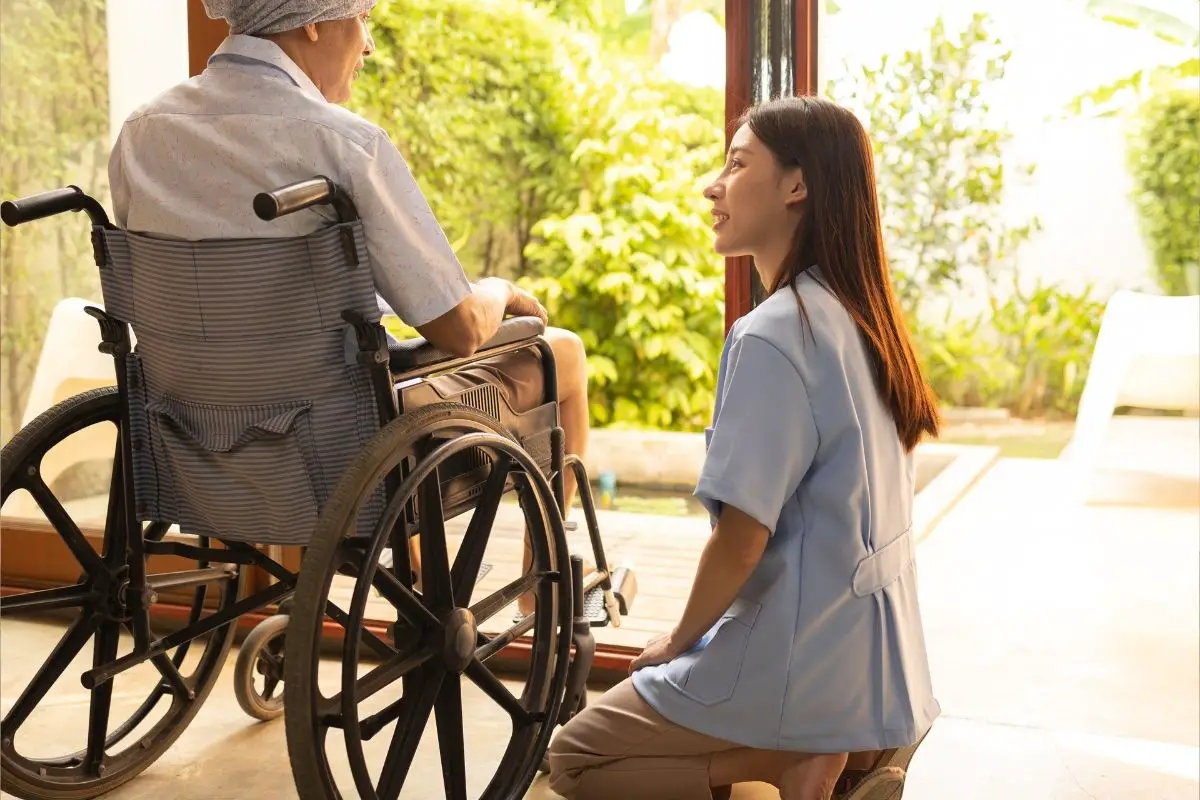Innovations in Senior Home Care: Technology and Elderly Homecare Solutions

Summary:
- Home-based senior care is being transformed through AI, telehealth, smart home technology, and VR to provide better safety, independence, and cognitive interaction.
- The essential role of human caregivers in home companion care for seniors includes offering emotional support, companionship, and help with daily tasks despite the importance of technology.
- The senior care technology market continues to grow rapidly. Because of rising acceptance of these solutions, experts predict a value of $101.62 billion for 2034.
The senior home care field experiences substantial changes because technology improves the quality of elderly life. Innovative technologies enable both independence and safety protection, which allows elderly people to age with dignity at home.

Telehealth and Remote Monitoring:
Senior citizens now receive virtual medical care through telehealth services from professionals who provide consultations remotely without clinic visits. People who face mobility difficulties and residents from remote locations find this method especially helpful because it provides them access to healthcare services. People who wear health trackers as remote monitoring devices record their heart rate, blood pressure, and oxygen levels through ongoing data collection. Healthcare providers receive live patient data, enabling them to identify warning signs quickly and intervene promptly, thus decreasing hospital referrals and enhancing treatment effects. The Mindbowser report demonstrates how these technologies allow healthcare professionals to deliver efficient, personalized care to elderly patients.
Artificial Intelligence in Elderly Care:
Implementing artificial intelligence systems has become essential for identifying health problems during the early stages of development. Health data analysis through AI-based predictive analytics allows healthcare providers to identify developing medical issues early for preventative action. Implementing AI-driven personal care assistants results in improved care quality through their capabilities to remind patients about medication, manage daily schedules, and offer companionship. According to Keoki Alexander-Chang, who founded Minikai, AI reduces healthcare workers’ administrative tasks, which enables them to dedicate more time to patient care.
Smart Home Technologies:
Smart home innovations enter senior care systems regularly to serve patients’ safety and independent living needs. Automated lighting, smart thermostats, and voice-activated assistants provide older adults with devices that enhance their ability to handle daily operations seamlessly. These systems use sensors to monitor home movements, detect unexpected behaviors and falls, and activate fast alerts to emergency services or caregivers. The University of California, Davis created the Interactive Care Platform (I-Care) to link older adults with mild cognitive impairment to family members who give daily support and improve safety measures.
Virtual Reality for Cognitive Engagement:
Virtual Reality is developing into an instrument to fight cognitive reduction and social detachment in senior citizens. Virtual Reality exposes users to multiple environments through which cognitive functions become activated while enabling them to experience things that physical barriers prevent them from accessing. The New Jewish Home in New York implements VR technology so its residents can use virtual travel experiences to maintain mental health and fight dementia.
Robotics in Home Care:
By improving robotics technology, the senior home care field continues to evolve. Robotic devices help elderly patients with two functions: dispensing medications and offering emotional support. The devices specifically support older adults by ensuring they follow medication plans through automated dispensing and help prevent prescription omissions. The social interaction capabilities of companion robots help older adults fight depression and loneliness.
The Role of Home Companion Care for Seniors:
The rapid technological expansion has not eliminated the need for personal human interaction when caring for older adults. Older adults receiving home companion care receive emotional support and daily help, while technology solutions work together with these services. Companion caregivers assist seniors with basic household activities, including cooking meals and driving them around, as well as organizing social events to improve their overall health condition. The integration of smart technology with human caregivers produces an optimal system for elderly home care that handles the physical requirements and emotional well-being of seniors.
The Impact of Technology on Caregiving:
Implementing technological solutions in elderly care provides advantages to seniors while lightening the care responsibilities for caregivers. Modern technology helps caregivers through automated operations, telehealth monitoring systems, and new communication frameworks that direct their focus toward personalized and sensitive care delivery. This transition creates a better caregiving process, guaranteeing proper care for seniors.
The worldwide senior care technology market is experiencing significant expansion due to rising adoption rates of these innovations. The Fact.MR report indicates that senior care technology market revenue will grow from $49.4 billion in 2024 to reach $101.62 billion by 2034, with a 7.5% Compound Annual Growth Rate (CAGR).
Challenges and Ethical Considerations:
The positive aspects of technology in elderly home care require attention to specific challenges and ethical considerations. Home health monitoring technology, which combines remote data collection and AI tools, creates privacy issues because it allows for increased data collection of personal information. Protecting sensitive data and fulfilling HIPAA standards requires consideration for excellent data security measures to keep trust and defend private patient data. The beneficial aspects of automation should be used prudently because heavy dependence on technology diminishes the need for human contact, which remains vital for senior emotional health.
Adopting new technology faces challenges because some older adults struggle to embrace and use digital systems. Since elderly adults usually lack knowledge about smartphones, tablets, and wearable devices, the use of friendly interfaces combined with appropriate training remains crucial. Training programs that maximize the benefits of technological advancements can close the gap between senior citizens and digital literacy.
Future Trends in Senior Home Care Technology:
AI, robotics, and smart home technology will continue to advance, thus providing more efficient and customized care for elderly patients at their homes. The future of senior care will advance toward improved results because of AI-based diagnostic predictions, robotic assistance, and AR-based therapeutic techniques. Integrating blockchain technology will improve data security measures by guaranteeing healthcare record privacy and their complete integrity.
Public institutions and private organizations need to collaborate to guarantee access to these technologies at reasonable prices for all socioeconomic groups of seniors. The growth of elderly individuals will require persistent funding for research and development to produce sustainable, high-quality solutions for home care services that meet the current and future needs of this demographic.
Conclusion:
Women who care for seniors at home now benefit from innovative technology that improves their autonomy and preserves their well-being and security during their late years. Modern technological advancements enable both the possibility and enhanced levels of comfort and fulfillment for people who age in their own homes. Smart home technology combined with artificial intelligence healthcare systems alongside human care programs will produce an environment for senior citizens to thrive during their golden years.






